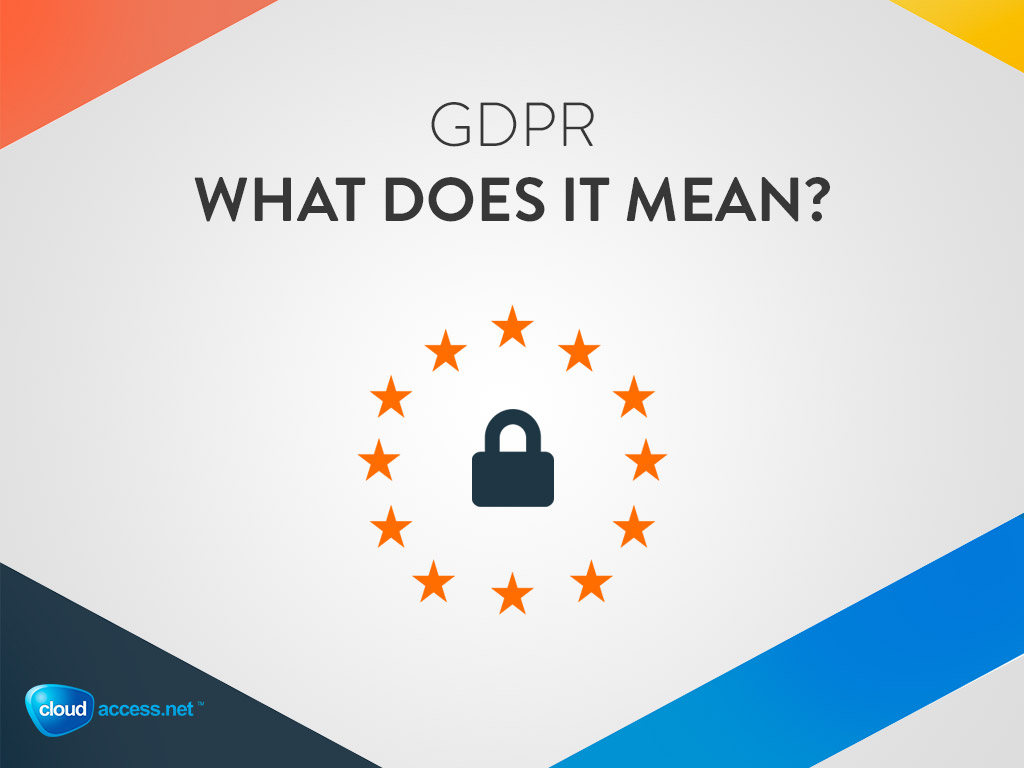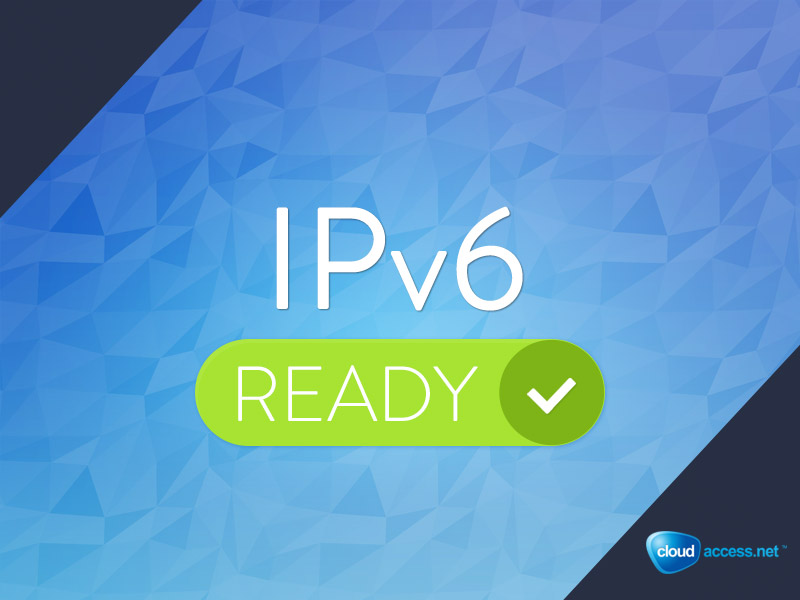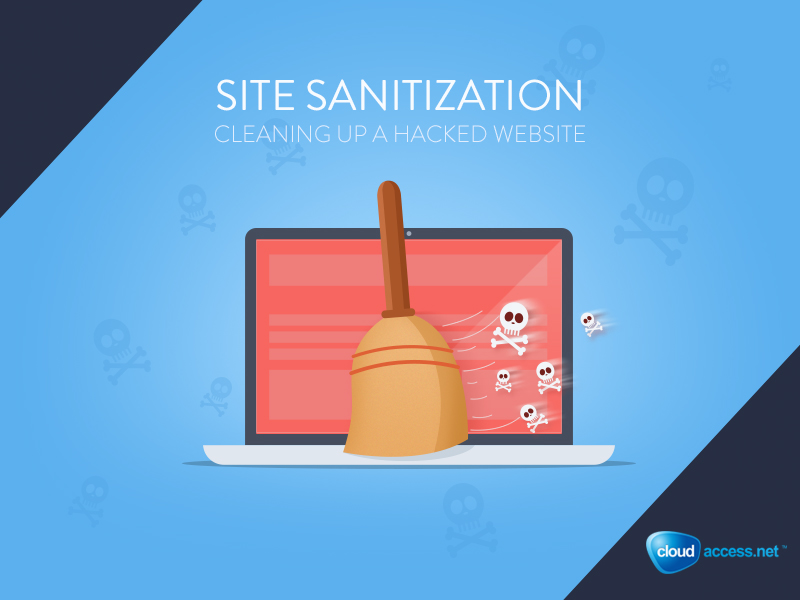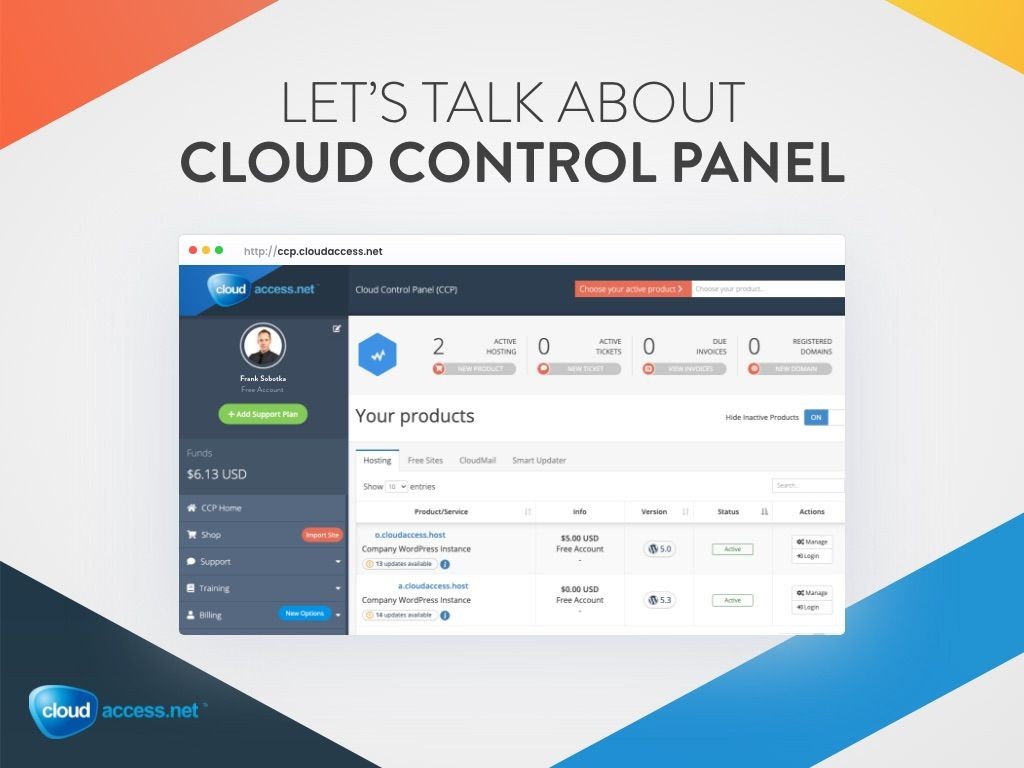cPanel has just announced yet another price increase of their services. As they stated in the email that was sent to their clients, they review their prices annually to „make sure you get the best possible product experience and support". Last increase took place last year and wasn't warm welcomed by customers. If you're tired of another such increase think about choosing different management tool like Cloud Control Panel. Cloud Control Panel™(CCP) by CloudAccess.net is an in-house development thus we don't rely on third party licensing costs. By choosing our tool you will never need to worry about prices increase.

The European Union has implemented a new law called the General Data Protection Regulation - GDPR for short - to help protect personal data of EU citizens. As a company that has many clients in the European Union, we have taken this very seriously and took steps to make sure that our service is GDPR compliant, which means many good things for our clients, not only from the EU but from all around the world.

Internet Protocol is the set of rules that governs the exchange of information and the way traffic is routed on the web. Internet Protocol Version 6 (IPv6) is the next generation Internet communication protocol that provides an identification and location system for devices, computers and networks and will replace IPv4, the current protocol that has many limitations. This blog shines some light on IPv6 and explains the impact on Internet users and how the CloudAccess.net platform is IPv6 ready.
The Growth of the Internet and the Need for a New Protocol
Originally developed in the 1970s, IPv4 is a cornerstone of the Internet as we know it. It was developed long before anyone could really imagine all of the interconnected devices that we have today. IPv4 allows for approximately 4.3 billion unique IP addresses, which might sound like a lot and certainly was a lot in 1970s standards. Nobody in 1970, however, could have predicted that the Internet would be as popular as it is or that many of us would be walking around with high speed computers in our pockets. With close to 3 billion current Internet users, IPv4 presents some serious limitations.
Essentially, the biggest limitation is that IPv4 is running out of the 32 bit addresses that each computer or device is required to have. An example of a 32 bit IPv4 address:

We pride ourselves on having an extremely secure platform, but even the most secure hosting providers see hacked websites on a daily basis. Almost always, the goal of the hacker is to steal content, send spam, spread malware or conduct some type of phishing scam. Many times we’ll see a site administrator clean a site only for it to be hacked again a few days later, and then they come to us wanting to know why. We find that some additional steps that can secure a site and fend off attacks are often neglected. This blog explains why sites are hacked, steps for cleaning up a hacked site, and preventative measures that can be taken to secure the site moving forward.
Why sites get hacked
Vulnerable Extensions
There are several reasons a site can be hacked, but the culprit we identify most often is an outdated extension. Updating extensions is critical because hackers can easily identify vulnerabilities in older versions, which are like a wide open back door to the site. If you’re using a Joomla site, it’s best practice to visit the Vulnerable Extensions List frequently. If you see an extension you’re using on this list, download and install the patches immediately. If no patches exist, disable the extension and find something to replace it.
Outdated Applications
Another reason we see sites hacked is because the site itself is an older version of the application, like Joomla 1.5 for example, which is no longer supported with security patches. We provide a managed hosting platform, which means we’ll update versions for you when a new STS (short term support) version becomes available. When a new LTS (long term support) version becomes available, it’s up to site administrators to upgrade on their own. It’s definitely best practice to stay current with the most recent version of your application.

